Constitutional courts around the world may have slightly different competences, but they also share several common goals – protecting constitutionality, fundamental rights, and the principles of the rule of law. In order to fulfil their role as effectively as possible, it is essential that their representatives share experiences, discuss current challenges, and seek common approaches to protecting the rule of law and the fundamental rights of individuals. For this reason, a delegation from the Constitutional Court of the Czech Republic, led by Vice-President Kateřina Ronovská, attended last week the VI Congress of the World Conference on Constitutional Justice (WCCJ) in Madrid.
The WCCJ brings together more than 120 constitutional courts, constitutional councils, and equivalent institutions from around the world. The WCCJ was founded in 2009 with the aim of promoting the independence of the judiciary, facilitating the exchange of experiences between constitutional courts, and strengthening international cooperation in the field of constitutional protection. Every three years, a congress is held, focusing on a specific topic that the member courts consider important.
This year's VI Congress was held under the presidency of the Spanish Constitutional Court from 28 to 30 October in the Spanish capital. Its main theme was "Human Rights of Future Generations." The program included plenary sessions, a conference – which, among other things, addressed the constitutional aspects of environmental protection and cultural heritage –and opportunities for informal bilateral meetings. Discussions focused on issues such as judicial independence, the protection of minorities, the impact of new technologies on constitutional law, and strengthening public confidence in the judiciary.
International meetings such as the one in Madrid are not only beneficial but also inspiring. The recently concluded congress offered a rich exchange of views, provided new impetus for constitutional justice, and contributed to the establishment of closer professional relations between courts and their representatives. Although constitutional courts are, in principle, independent institutions, they are not isolated islands – it is international cooperation that enriches their work, oxygenates it, and opens up new horizons. Because the world is changing dynamically, constitutional courts must change with it.
Vlastimil Göttinger
Secretary General
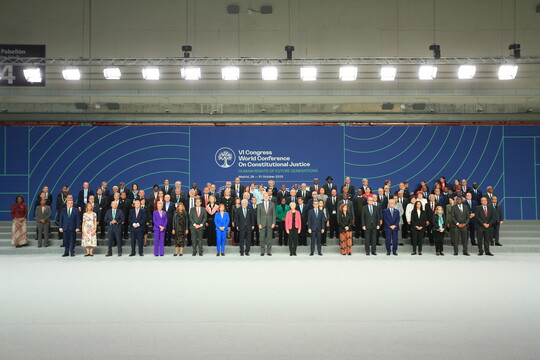
Heads of delegations from WCCJ member courts in a group photo with King Felipe VI of Spain
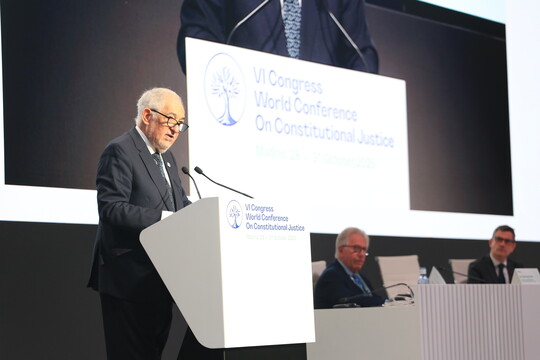
The VI Congress of the WCCJ was opened by the President of the host court, Cándido Conde-Pumpido Tourón
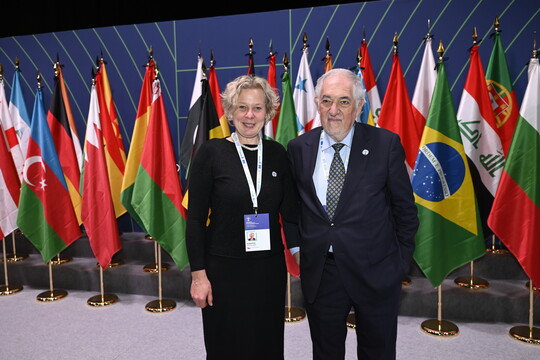
Vice-President of the Constitutional Court of the Czech Republic Kateřina Ronovská with the President of the Constitutional Court of the Kingdom of Spain
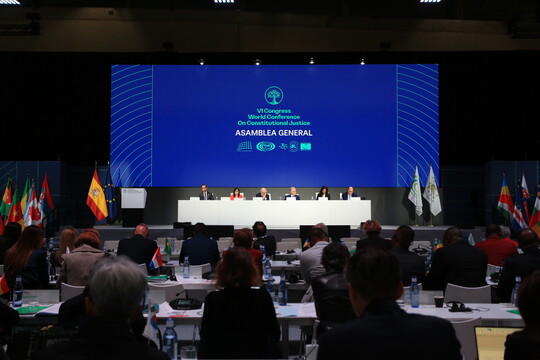
Meeting of the General Assembly during the VI Congress of the WCCJ
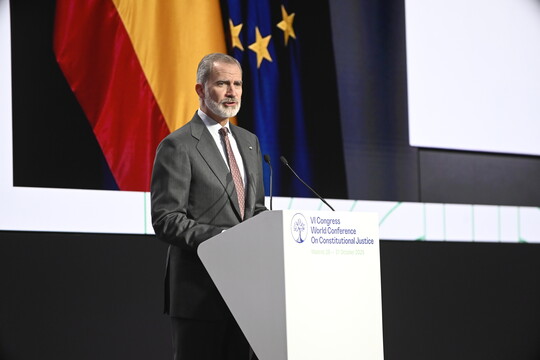
King Philip VI of Spain during his speech at the closing ceremony of the VI Congress of the WCCJ
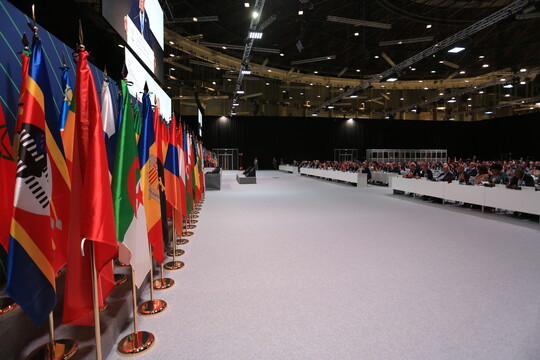
VI Congress of the WCCJ
©Photos: Constitutional Court of the Kingdom of Spain